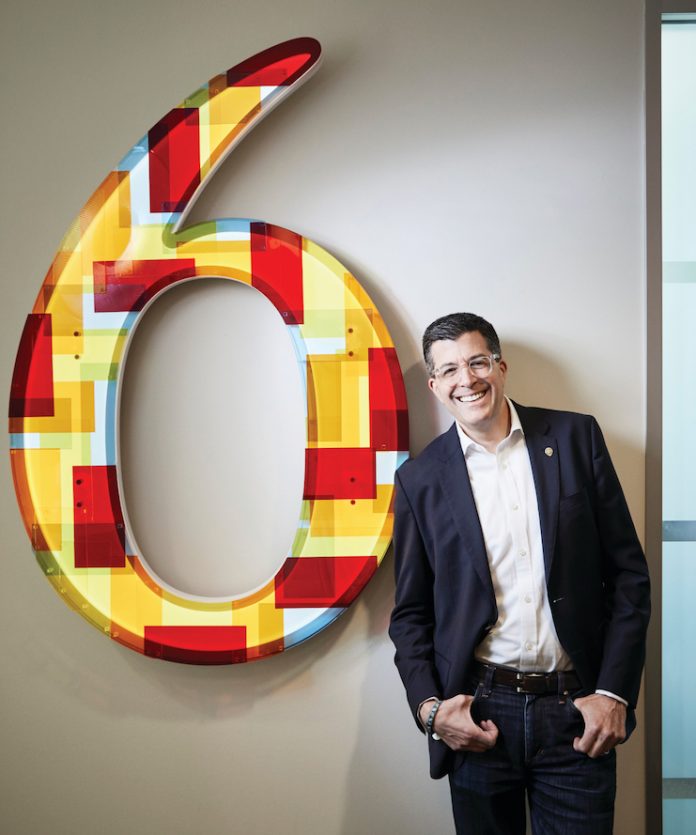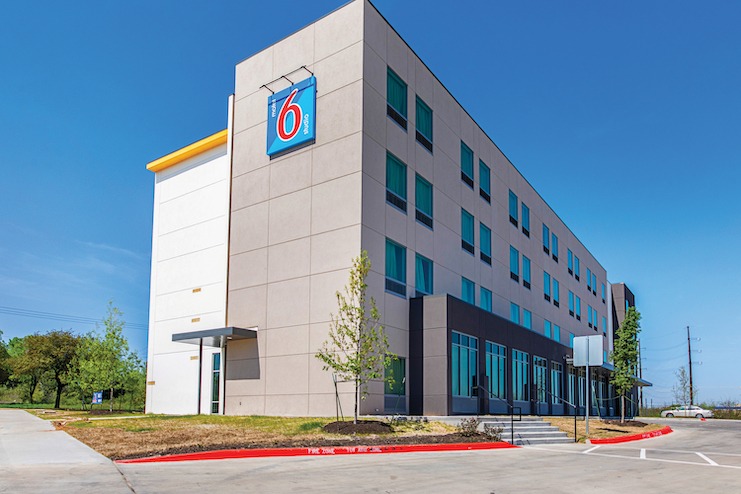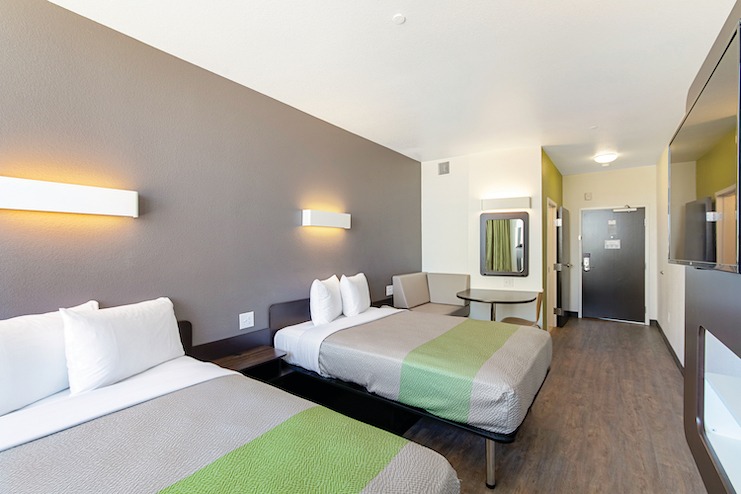
As G6 Hospitality CEO Rob Palleschi told LODGING, taking over the top job at the parent company of Motel 6 and Studio 6 after the retirement of Jim Amorosia last year was initially daunting.
“Following an industry legend like Jim was nerve-wracking, but with the counsel and cooperation of fantastic partner owners, an amazing executive committee and board of directors, and top-notch company leadership, I’m managing to scale the learning curve and move the company in a positive direction—one focused on the basics.” Beyond the 57-year-old brand value proposition based on comfort, cleanliness, and affordability for travelers and high returns for owners, Palleschi explains, the “basics” it must incorporate now include new measures to ensure the safety and security of guests and employees and to enhance its technology platform.
Palleschi says he loves the hospitality industry but admits that it’s the only business he knows. “If you count the years I spent at the front desk back in high school, I’ve been in this business for 39 years.”
“If you stay focused on the properties themselves and view them as the customer of the brand, you’ll be successful.”
He says his experience was limited to operations until he had the opportunity to take on a brand role at Hilton, where he spent 12 years and rose to the position of global head of full-service brands. Yet, even in brand roles at Hilton, he says, his focus was on operators—either as the company operating and owning properties or its franchise partners. This, he says, helped him better understand the business and how to approach it: “If you stay focused on the properties themselves and view them as the customer of the brand, you’ll be successful.”
Even now as CEO, Palleschi recognizes just two customers—the traveling public and the ownership groups, and says the key to success with both lies in focusing on the quality of their experience. “The quality of the experience for the guest hinges on delivering on our brand promise—that is, to provide accommodations that are clean, comfortable, and affordable. The quality of the experience for franchise partners relates to our ability to provide the tools, resources, and training they need to successfully meet guest expectations and run their businesses profitably.”

Palleschi says, his plan for 2019 and 2020 is to “stick to basics.” This, he stresses, is not simply a matter of staying the course in the dynamic hospitality space. “To stay true to the original brand value proposition sounds simple, but it’s not easy. It takes a lot of time, energy, and focus; and there are a lot of conversations with guests and franchise partners to assure that we’re all still truly aligned. It’s easier in some cases to follow everyone else.”
A significant challenge, he says, comes back to the company’s brand value proposition, which encompasses not just affordability for guests, but also high returns for owners. So, rather than rushing in with copycat programs economy guests don’t expect, Palleschi says, the company has prioritized capital investment in areas that do align with the spirit of that proposition, which now includes providing for the safety and security of both guests and employees, and enhancing its technology platform to keep pace with the competition.
Noting that the G6 brands are the first economy brands to offer the employee safety devices (ESD) AHLA members committed to providing by 2020, Palleschi says, “We believe we must provide a safe and secure environment for our guests and for our team members. In addition to already providing ESDs at our company-owned properties, we have also invested in additional security cameras, enhanced locks on guestroom doors, and better lighting in parking lots.” To keep pace with technology—which Palleschi admits is an ongoing struggle—he says the company has shifted its legacy reservation platform to Amazon Web Services cloud infrastructure services.
Palleschi does worry about the ability of the lodging industry to attract the talent it needs to continue to thrive, especially for cost-conscious economy brands like Motel 6. To increase the talent pool, he says, hotel operators need to better engage with high schools and community colleges, and encourage their local communities to invest in trade schools with hospitality programs. He adds, “We must continue to leverage the resources of AHLA, AAHOA, and state lodging associations to ensure that potential hires are aware of the long term value and opportunities of the lodging industry.”

The hotel industry’s permanence is also a major selling point, Palleschi notes. “We cannot be outsourced to another country, our buildings cannot be moved. We are entrenched in local communities and are here to stay. There’s huge value in that, and there are careers in that. We need to be sure that people are aware of these benefits and know that hospitality offers these opportunities.”
Even after 39 years, Palleschi remains enamored of the hospitality industry—especially because of its diversity and service orientation. “There are people from all cultures, with and without college degrees or specialized training, speaking every language. What other industry has such incredible depth, scale, and opportunity? Hospitality is everywhere on the planet, every region, country, and community. We are made up of all people and we serve all. Just look at me; I started as a desk clerk in high school, and I’m now running a company.”











